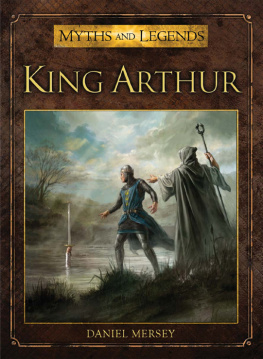Arthur Thomas Malkin - Historical Parallels, vol. 3 (of 3)
Here you can read online Arthur Thomas Malkin - Historical Parallels, vol. 3 (of 3) full text of the book (entire story) in english for free. Download pdf and epub, get meaning, cover and reviews about this ebook. year: 2020, publisher: Library of Alexandria, genre: History. Description of the work, (preface) as well as reviews are available. Best literature library LitArk.com created for fans of good reading and offers a wide selection of genres:
Romance novel
Science fiction
Adventure
Detective
Science
History
Home and family
Prose
Art
Politics
Computer
Non-fiction
Religion
Business
Children
Humor
Choose a favorite category and find really read worthwhile books. Enjoy immersion in the world of imagination, feel the emotions of the characters or learn something new for yourself, make an fascinating discovery.

- Book:Historical Parallels, vol. 3 (of 3)
- Author:
- Publisher:Library of Alexandria
- Genre:
- Year:2020
- Rating:3 / 5
- Favourites:Add to favourites
- Your mark:
- 60
- 1
- 2
- 3
- 4
- 5
Historical Parallels, vol. 3 (of 3): summary, description and annotation
We offer to read an annotation, description, summary or preface (depends on what the author of the book "Historical Parallels, vol. 3 (of 3)" wrote himself). If you haven't found the necessary information about the book — write in the comments, we will try to find it.
Historical Parallels, vol. 3 (of 3) — read online for free the complete book (whole text) full work
Below is the text of the book, divided by pages. System saving the place of the last page read, allows you to conveniently read the book "Historical Parallels, vol. 3 (of 3)" online for free, without having to search again every time where you left off. Put a bookmark, and you can go to the page where you finished reading at any time.
Font size:
Interval:
Bookmark:

PARALLELS.
CHARLES KNIGHT & Co., LUDGATE STREET.
1846.
WILLIAM CLOWES AND SONS,
STAMFORD STREET.
| Page |
| CHAPTER XIII. |
| Siege of PlataNumantiaTyreSyracuseLines of CircumvallationSiege of JerusalemOf La RoleEffects of the invention of gunpowderSiege of OstendMagdeburgCharacter of the mercenary troops of the seventeenth centurySiege of Zaragoza |
| CHAPTER XIV. |
| Corcyrean seditionCivil wars of RomeJacquerieFactions of the Circus at ConstantinopleMassacre of Sept. 2, 1792 |
| CHAPTER XV. |
| Character of CleonBlockade and capture of the Lacedmonians at PylosComparison with the capture of Porto Bello by Admiral VernonGreek comedySketch of the Knights of AristophanesSubsequent history of CleonAccount of the Popish PlotCharacter and history of Titus OatesMutilation of the Herm at Athens |
| CHAPTER XVI. |
| Athenian expedition against SicilySiege of SyracuseRetreat and destruction of the armyRetreat of Ney in RussiaRetreat of Sir John Hawkwood in Italy |
| CHAPTER XVII. |
| Sketch of the interval which elapsed between the defeat in Sicily, and the battle of ArginusBattle of ArginusProsecution and death of the Athenian GeneralsMassacre of the De WittsEnd of the Peloponnesian war |
| CHAPTER XVIII. |
| History and character of SocratesAccount of his deathProsecution of John Huss, and Jerome of PragueAttempt to reestablish Prelacy in ScotlandBrownGuthrieReformation in EnglandAccount of Rowland Taylor |
| INDEX OF VOLUME III. |
| GENERAL INDEX OF PRINCIPAL SUBJECTS IN ALL VOLUMES |
| Page |
| Medal, containing a plan of Ostend |
| Battering Ram, from Pompeii |
| Moveable Towers, from ditto |
| Plan of Zaragoza |
| Hippodrome of Constantinople |
| Medal struck after Sir E. Godfreys murder |
| Medal of Titus Oates |
| Prow of an ancient vessel found at Genoa |
| Disposition of Athenian fleet at Arginus |
| Medal struck after the massacre of the De Witts |
| Obverse |
| Reverse |
| Bust of Socrates |
| Head of Plato |
Font size:
Interval:
Bookmark:
Similar books «Historical Parallels, vol. 3 (of 3)»
Look at similar books to Historical Parallels, vol. 3 (of 3). We have selected literature similar in name and meaning in the hope of providing readers with more options to find new, interesting, not yet read works.
Discussion, reviews of the book Historical Parallels, vol. 3 (of 3) and just readers' own opinions. Leave your comments, write what you think about the work, its meaning or the main characters. Specify what exactly you liked and what you didn't like, and why you think so.




